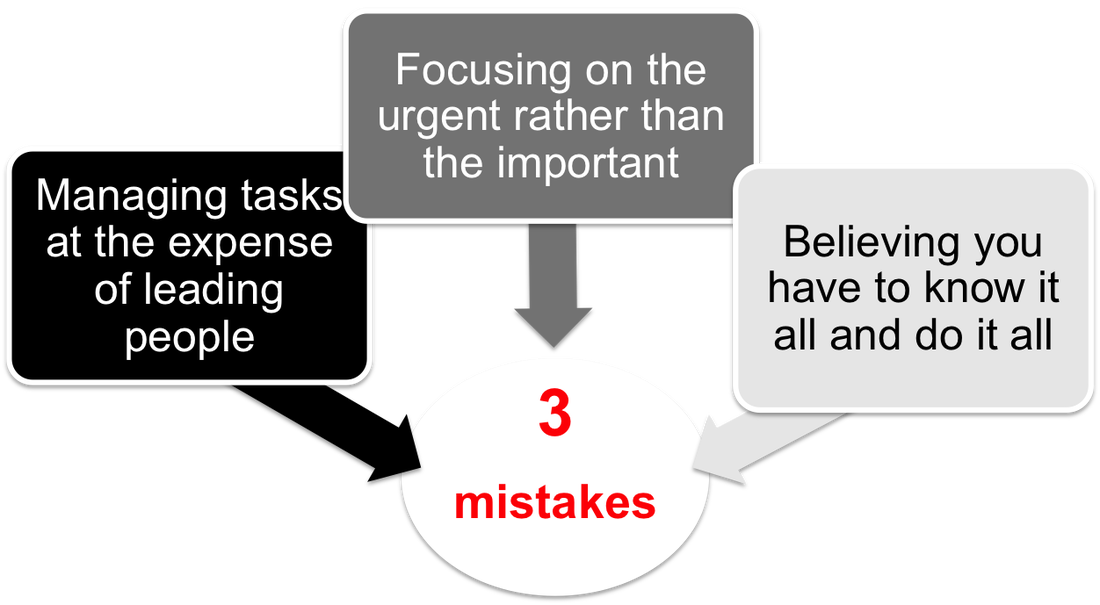- They manage tasks, events and processes at the expense of leading people
- They are reactive and focus on the urgent rather than the important
- They believe they have to know it all and do it all instead of looking to the team for solutions and innovative ideas
Mistake #1: Managing tasks and events at the expense of leading people
The most common mistake project managers make is that they are more concerned with tasks and events than with people and the human impact of change – often unknowingly. Many project managers have a rational, logical and analytical way of thinking. They are good at analyzing facts, calculating duration, coordinating activities and making rational decisions. They are task-focused and see their primary role as delivering what the customer has asked for within the agreed parameters of time, cost and quality. They are less concerned with why their customer needs the product and in which ways it affects their business and the people who develop it and use it. Their strength is in executing and following someone else’s vision and specification – rather than helping to define it.
Mistake #2: Being reactive and focusing on the urgent rather than the important
The second big mistake is that project managers are too concerned with urgent matters that need to be resolved in the here and now as opposed to being proactive and dealing with the long term. It’s human nature to respond to queries, requests and issues, and it makes us feel good because we are taking action and being seen to do something. Oftentimes we are even seeking the urgent, for instance when we frequently check our email to see if anything pressing has arrived. It is a culture and a mindset which some have adopted more than others. By busying ourselves and attending to urgent short term requests, we operate at a surface level. We never get to address the root causes and free ourselves up to thinking smarter thoughts; questioning, innovating, strategizing and developing human capital, including our own.
Mistake #3: Believing that we have to know all the answers
The third big mistake project managers make is that they believe they have to know all the answers. This helps them make decisions, communicate with clients, approve work and stay in control of the project. As a result they are often involved in very detailed conversations and in the decisions that help shape how the work is to be carried out by their teams. Feeling that we have to know it all puts a huge amount of pressure on the project manager’s shoulders and forces us to be involved in almost all conversations across the project. Not only is it exhausting and inefficient, it also disengages the team as the project manager defaults to telling others what to do. It is very disempowering, and results in the project being cut off from its best thinking – that of its team members.
Be an enabler and ask questions
A far better option is to be the enabler; someone who asks the right questions and who challenges the team to think its best thoughts and do its best work. Instead of telling people what we know, we have to help them learn what they need to know. Building high performing teams, great stakeholder relationships and ensuring that the project delivers what the customer needs cannot be achieved solely through logic and micromanaging the detail. It requires creativity, empathy, risk-taking, vision and most importantly the ability to connect with people at a very personal level. We urgently need to put more emphasis on develop our EQ alongside our IQ.
| To learn about how you can access your empowering style and avoid the most common traps in project management, get hold of the 2nd edition of "The Power of Project Leadership – 7 keys to help you transform from project manager to project leader". |











 RSS Feed
RSS Feed